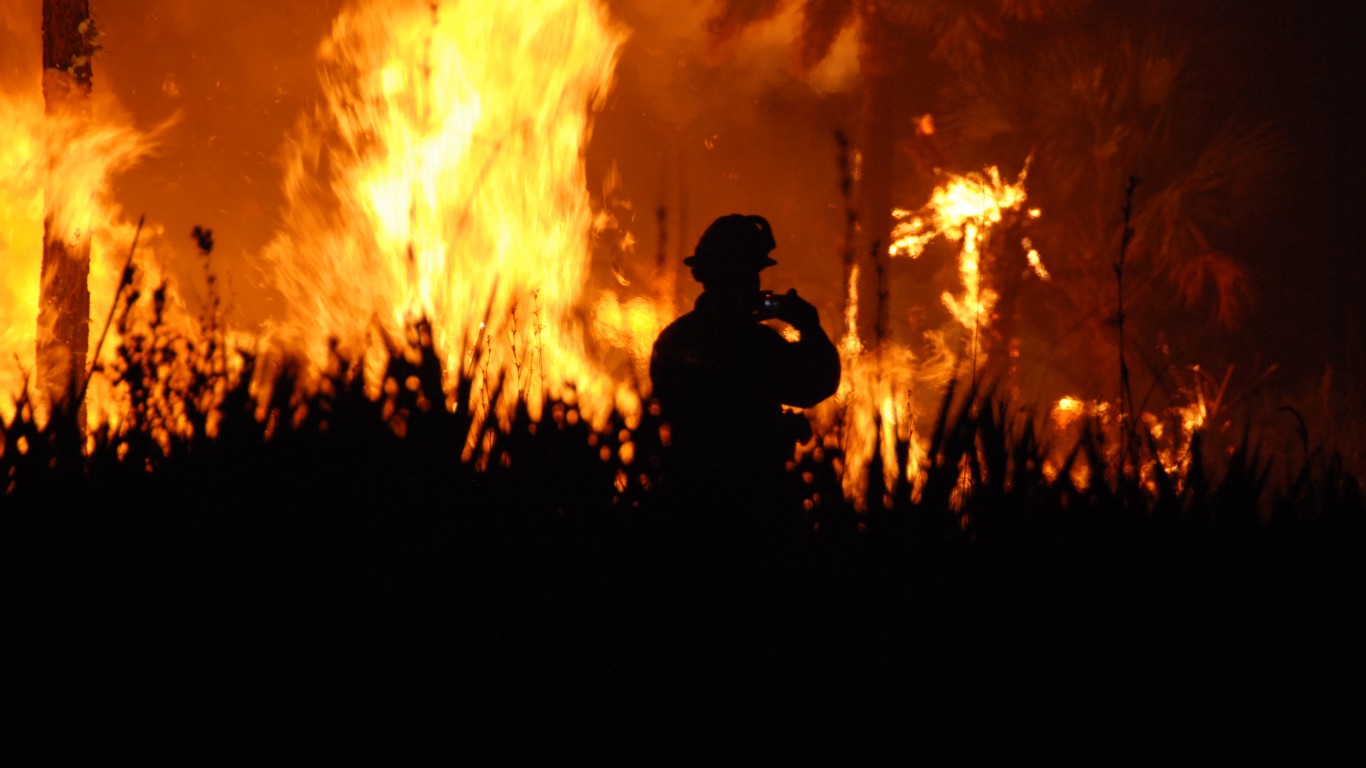Infrastructure
Largest Wildfire in American History Was in 1871

Published:
Last Updated:

California has had the worst wildfire season in its history already this year. The situation has worsened in the past two days. What is known as the Bear Fire has burned 240,000 acres in a single day. Fifteen people have died. The fires in Oregon are nearly as bad. As many as half a million people are in the process of evacuation. None of these, nor even all of these taken together, is as big or destructive as a fire that hit parts of Wisconsin and northern Michigan over 150 years ago.
[in-text-ad]
The Great Peshtigo Fire of 1871 covered 5,938 square miles, which is larger than the state of Connecticut. The land destroyed was in Michigan’s Upper Peninsula and northern parts of Wisconsin. Most of the damage was done from October 8 to 14. The fire was so long ago that no one can say for certain how it started. The theory is unattended campfires. It accelerated because the region was hot and dry in late summer and early fall that year. The National Weather Service described the reasons for the blaze:
The fire in Peshtigo resulted from a number of factors, including prolonged drought, logging and clearing of land for agriculture, local industry, ignorance and indifference of the population, and ultimately a strong autumn storm system occurring in the presence of conditions supportive of a large, rapidly-spreading fire.
Eyewitness accounts include stories of people who caught on fire because of fire tornados caused by rising and swirling winds. Other people may have died in the extremely hot water of rivers caused by excessive heat. The fire is named for Peshtigo, a town in Wisconsin where as many as 800 people died. Accounts say the town was burned to the ground in an hour.
The fire was worse than it might be today. There were no firefighting experts to battle the spread of the flames with the use of modern tactics. These include attacking the hottest parts of a large fire or setting other blazes that clear land and keep the fire from spreading. There were no tanker planes to drop flame retardant and water.
People assume that fires, particularly the recent ones in California and Oregon, are larger than any in the past and perhaps more deadly. Neither is true. What is true is that the causes of the fire and the reason for its spread are similar to the circumstances that have triggered those burning now.
Retirement can be daunting, but it doesn’t need to be.
Imagine having an expert in your corner to help you with your financial goals. Someone to help you determine if you’re ahead, behind, or right on track. With SmartAsset, that’s not just a dream—it’s reality. This free tool connects you with pre-screened financial advisors who work in your best interests. It’s quick, it’s easy, so take the leap today and start planning smarter!
Don’t waste another minute; get started right here and help your retirement dreams become a retirement reality.
Thank you for reading! Have some feedback for us?
Contact the 24/7 Wall St. editorial team.